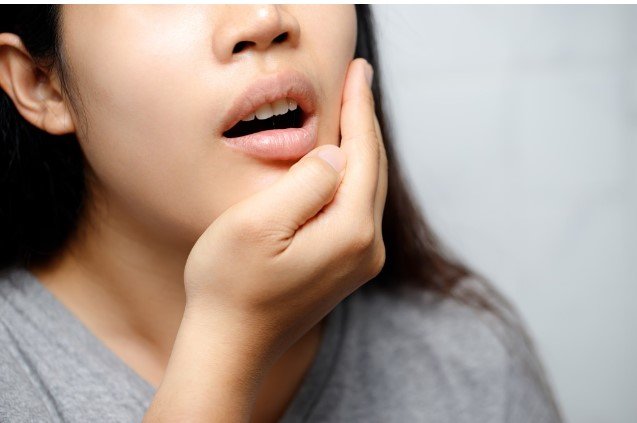Understanding and Managing Sensitive Teeth Pain: Expert Tips

Sensitive teeth can be a frustrating and uncomfortable condition, affecting millions of people worldwide. From sharp, sudden pains to discomfort when consuming hot or cold foods, sensitive teeth can significantly impact one’s quality of life. However, with the right understanding and management techniques, individuals can alleviate and manage sensitive teeth pain effectively. In this comprehensive guide, we’ll delve into the causes of sensitive teeth, explore expert tips for managing the pain, and provide practical advice for maintaining optimal oral health.
Understanding Sensitive Teeth
Before diving into management strategies, it’s crucial to understand what causes sensitive teeth. The outer layer of our teeth, called enamel, serves as a protective barrier. Beneath the enamel lies a layer called dentin, which contains microscopic tubules that connect to the tooth’s nerve center, known as the pulp. When the enamel wears down or the gum line recedes, these tubules become exposed, allowing stimuli such as hot, cold, acidic, or sticky foods to reach the nerves, resulting in sensitivity and pain.
Effective treatment for sensitive teeth often involves desensitizing agents, such as fluoride toothpaste, or specialized dental procedures like sealants or bonding. By addressing the underlying causes and utilizing targeted interventions, individuals can find relief from discomfort and enjoy improved dental health and quality of life.
Common Causes of Sensitive Teeth
1. Enamel Erosion: Acidic foods and beverages, as well as acidic conditions in the mouth due to factors like acid reflux or bulimia, can erode enamel over time, exposing the dentin and leading to sensitivity.
2. Gum Recession: Gum disease, aggressive brushing, or aging can cause the gum tissue to recede, exposing the sensitive root surfaces of the teeth.
3. Tooth Decay: Cavities or dental caries can penetrate through the enamel, reaching the dentin and causing sensitivity.
4. Bruxism: Clenching or grinding of teeth, often during sleep, can wear down enamel and lead to sensitivity.
5. Dental Procedures: Teeth whitening treatments, dental cleanings, or restorative procedures like fillings or crowns may temporarily increase sensitivity.
Expert Tips for Managing Sensitive Teeth Pain
1. Use Desensitizing Toothpaste: Opt for toothpaste specifically formulated for sensitive teeth, containing ingredients like potassium nitrate or stannous fluoride, which help block the transmission of sensation from the tooth surface to the nerve.
2. Practice Good Oral Hygiene: Maintain a consistent oral hygiene routine, including brushing twice a day with a soft-bristled toothbrush and fluoride toothpaste, and flossing daily to remove plaque and prevent gum disease.
3. Avoid Acidic Foods and Beverages: Limit consumption of acidic foods and drinks such as citrus fruits, sodas, and fruit juices, as they can contribute to enamel erosion and sensitivity.
4. Use a Fluoride Rinse or Gel: Incorporate fluoride rinses or gels into your oral care routine to strengthen enamel and reduce sensitivity.
5. Be Gentle When Brushing: Avoid aggressive brushing techniques and use a soft-bristled toothbrush to prevent further enamel wear and gum recession.
6. Wear a Night Guard: If you grind or clench your teeth, wearing a Night Guard can help protect your teeth from damage and reduce sensitivity.
7. Seek Professional Treatment: Consult your dentist for professional treatments such as fluoride varnishes, dental sealants, or in-office desensitizing treatments to alleviate sensitivity.
8. Address Underlying Dental Issues: Treat any underlying dental problems such as cavities, gum disease, or enamel erosion promptly to prevent further sensitivity.
Maintaining Optimal Oral Health
In addition to managing sensitive teeth pain, maintaining optimal oral health is essential for preventing further complications. Here are some additional tips for keeping your teeth and gums healthy:
1. Regular Dental Check-ups: Schedule routine dental check-ups and cleanings every six months to detect and address any dental issues early.
2. Healthy Diet: Eat a balanced diet rich in fruits, vegetables, lean proteins, and dairy products to support overall oral health.
3. Limit Sugary and Sticky Foods: Minimize consumption of sugary and sticky foods that can contribute to tooth decay and gum disease.
4. Stay Hydrated: Drink plenty of water throughout the day to help rinse away food particles and bacteria, maintaining a clean oral environment.
5. Quit Smoking: If you smoke or use tobacco products, quit to reduce your risk of gum disease, tooth loss, and oral cancer.
Read also: Ensuring Your Child’s Confidence and Health in Bartow: The Role of a Skilled Orthodontist
Exploring Alternative Therapies
Some individuals may find relief from sensitive teeth pain through alternative therapies or natural remedies. While these approaches may not work for everyone, they can be worth exploring as complementary treatments alongside traditional methods. Here are a few alternative therapies to consider:
1. Oil Pulling: This ancient Ayurvedic practice involves swishing oil (such as coconut oil or sesame oil) around in the mouth for several minutes before spitting it out. Advocates of oil pulling suggest that it can help reduce bacteria in the mouth and alleviate sensitivity.
2. Herbal Remedies: Certain herbs, such as cloves or chamomile, have been traditionally used for their analgesic and anti-inflammatory properties. Applying a clove oil solution or using chamomile tea as a mouth rinse may offer some relief from sensitive teeth pain.
3. Acupuncture: Acupuncture, a traditional Chinese medicine technique involving the insertion of thin needles into specific points on the body, has been explored for its potential benefits in managing various types of pain, including dental sensitivity. While more research is needed to fully understand its effectiveness for sensitive teeth, some individuals may find acupuncture helpful as part of a holistic approach to pain management.
Conclusion
Sensitive tooth pain can significantly impact one’s daily life, but with proper understanding and management techniques, individuals can find relief and maintain optimal oral health. By identifying the causes of sensitivity, adopting good oral hygiene practices, and seeking professional treatment when needed, individuals can effectively manage sensitive teeth pain and enjoy a healthy, pain-free smile. Remember, consistency and proactive care are key to preventing and managing sensitive teeth pain in the long term.




